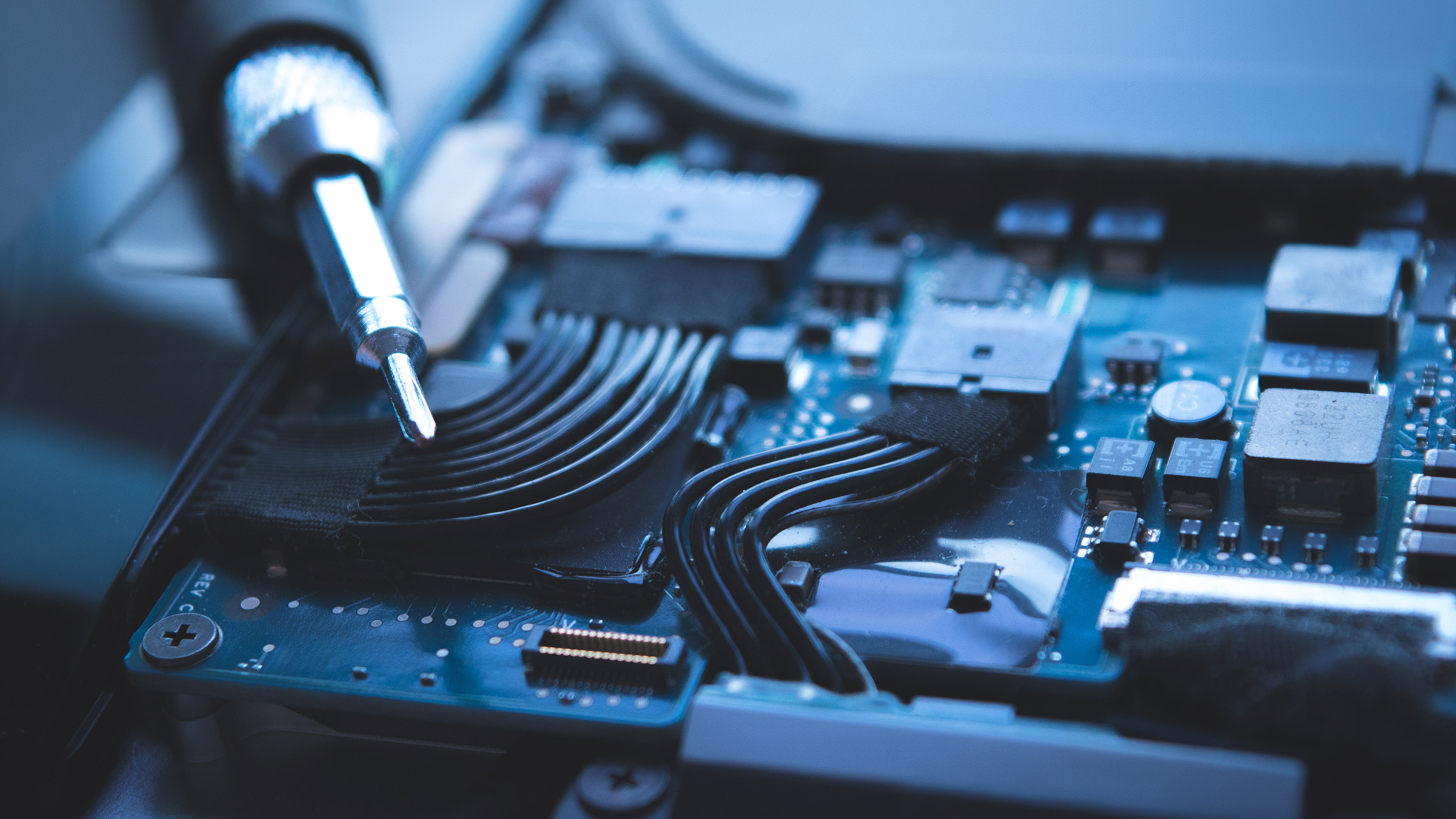NEEC: “How far can we go?"
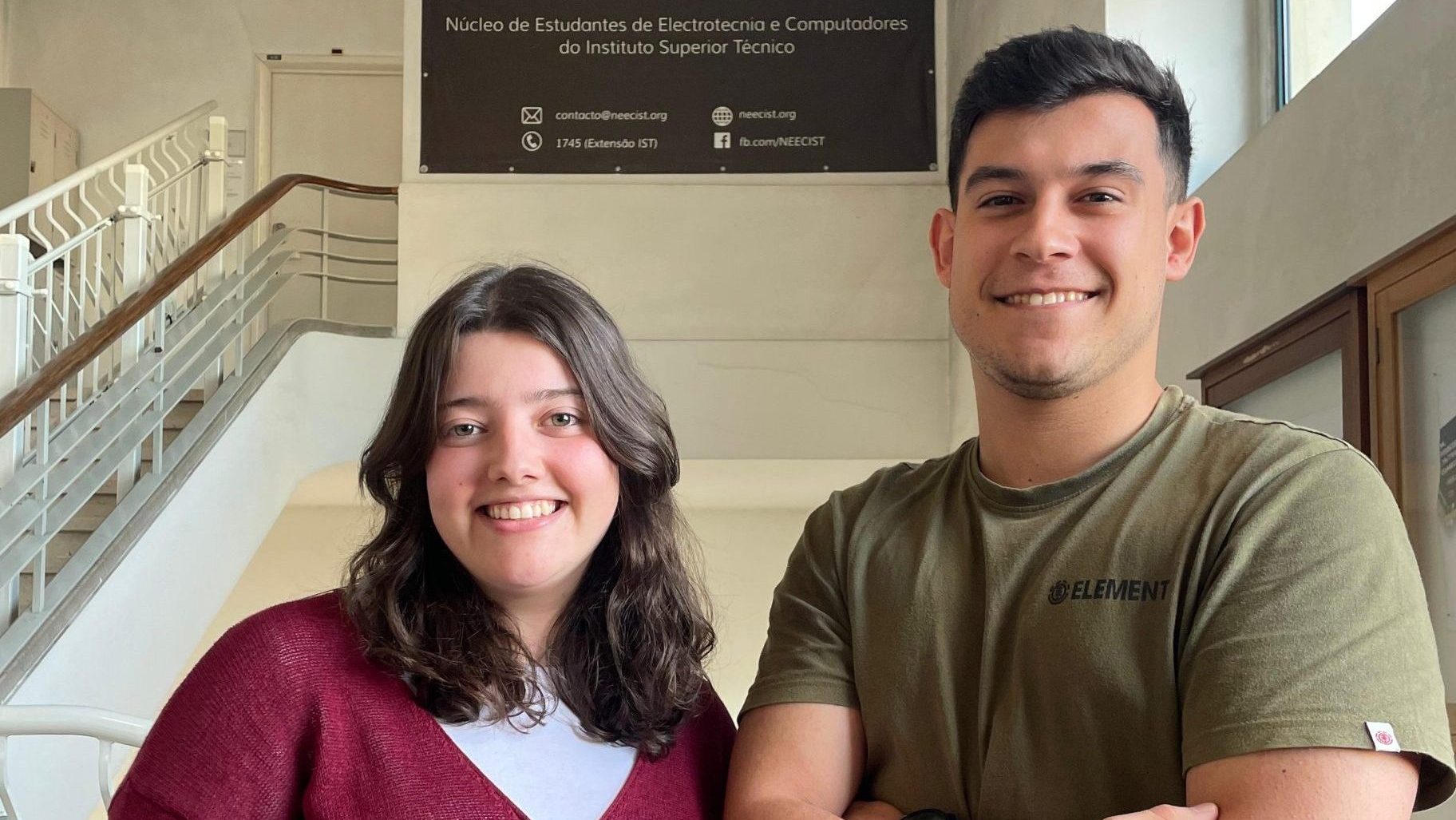
The Electrical and Computer Engineering Student Group, also known as NEEC, includes undergraduate and master's students from the same program. Its main goal is to develop projects and prototypes in areas such as robotics, programming, and electronics. In an interview with DEEC, António Ribeiro, a Master’s student in Electrical and Computer Engineering (MEEC), and Diana Dâmaso, a Bachelor’s student in the same field (LEEC), shared recent developments within NEEC and their personal experiences as students.
The group opens doors to creativity.
António Ribeiro, MEEC student
For the students, NEEC is synonymous with creativity and dedication, exemplified by projects such as the cocktail machine, the group’s most recent prototype, designed and built to prepare cocktails. Using Arduino, once all the base liquids are placed in the machine and a cocktail is selected, the robot mixes only the necessary ingredients to create the final drink. The prototype was assembled during the Electrical and Computer Engineering Days (JEEC), held at the Técnico Innovation Center — an event also organized in part by NEEC members.
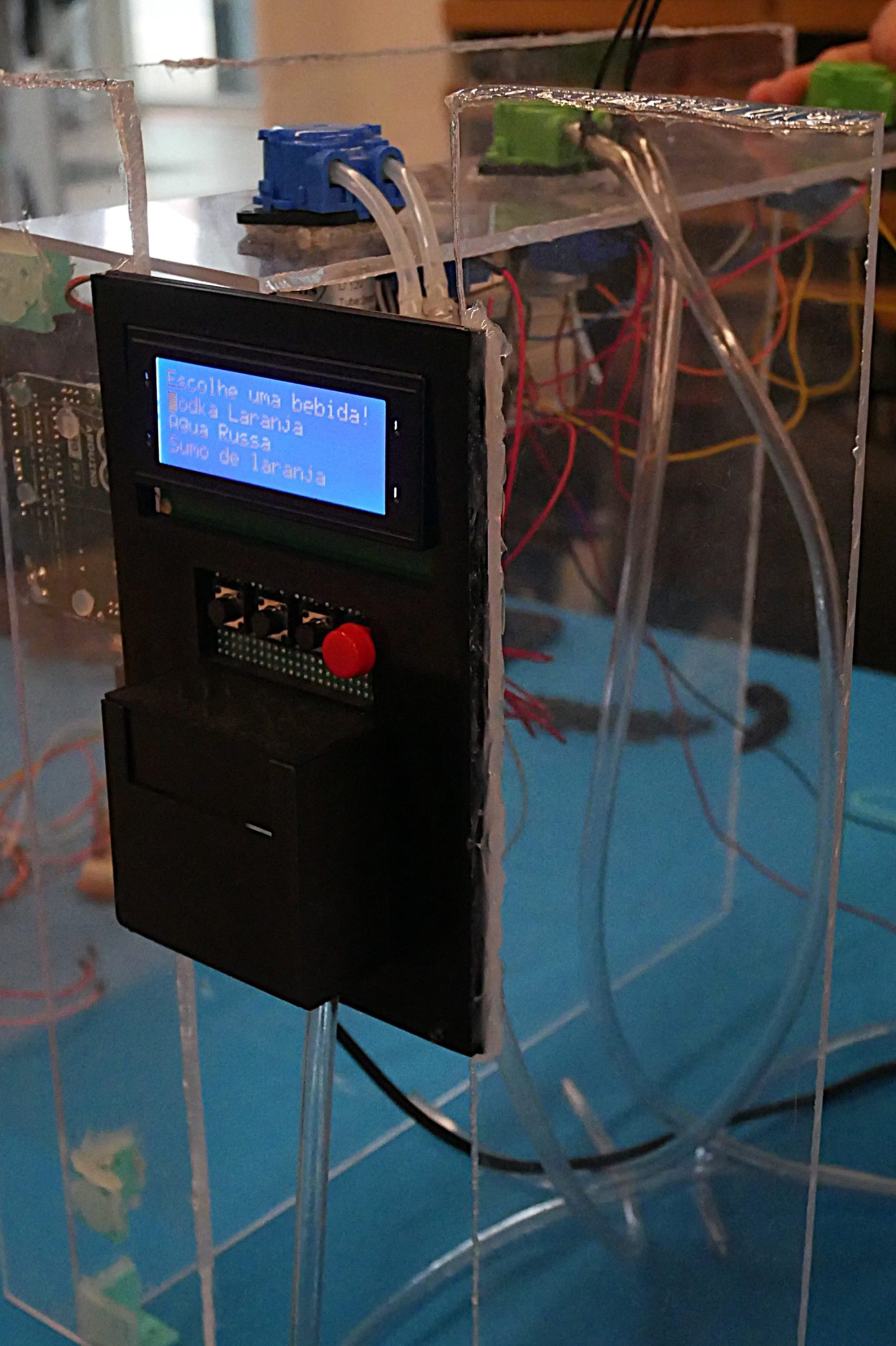
The group has also developed other prototypes such as the NEEC Claw, a robotic arm capable of picking up small objects, and the NEECBot, a robot that navigates autonomously using servos—small electric motors with position and speed control—and sensors to avoid obstacles in its path.
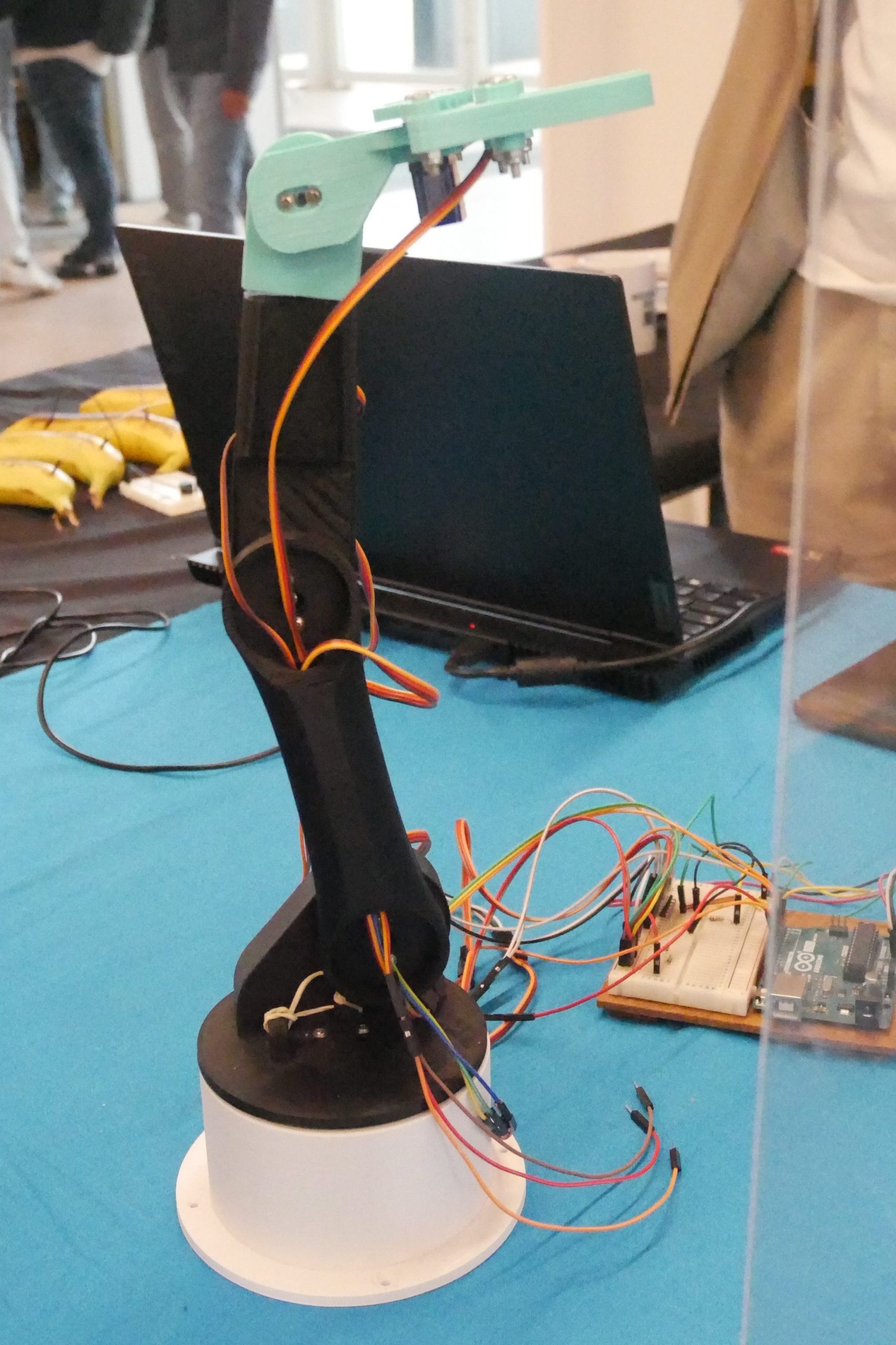
The NEECBot is almost a historic piece in the group.
Diana Dâmaso, LEEC student
The NEECBot was one of the group’s first projects, initially developed by students from the first generations. Over the years, it has been rebuilt and improved, becoming an ongoing optimization challenge for each new group of students.
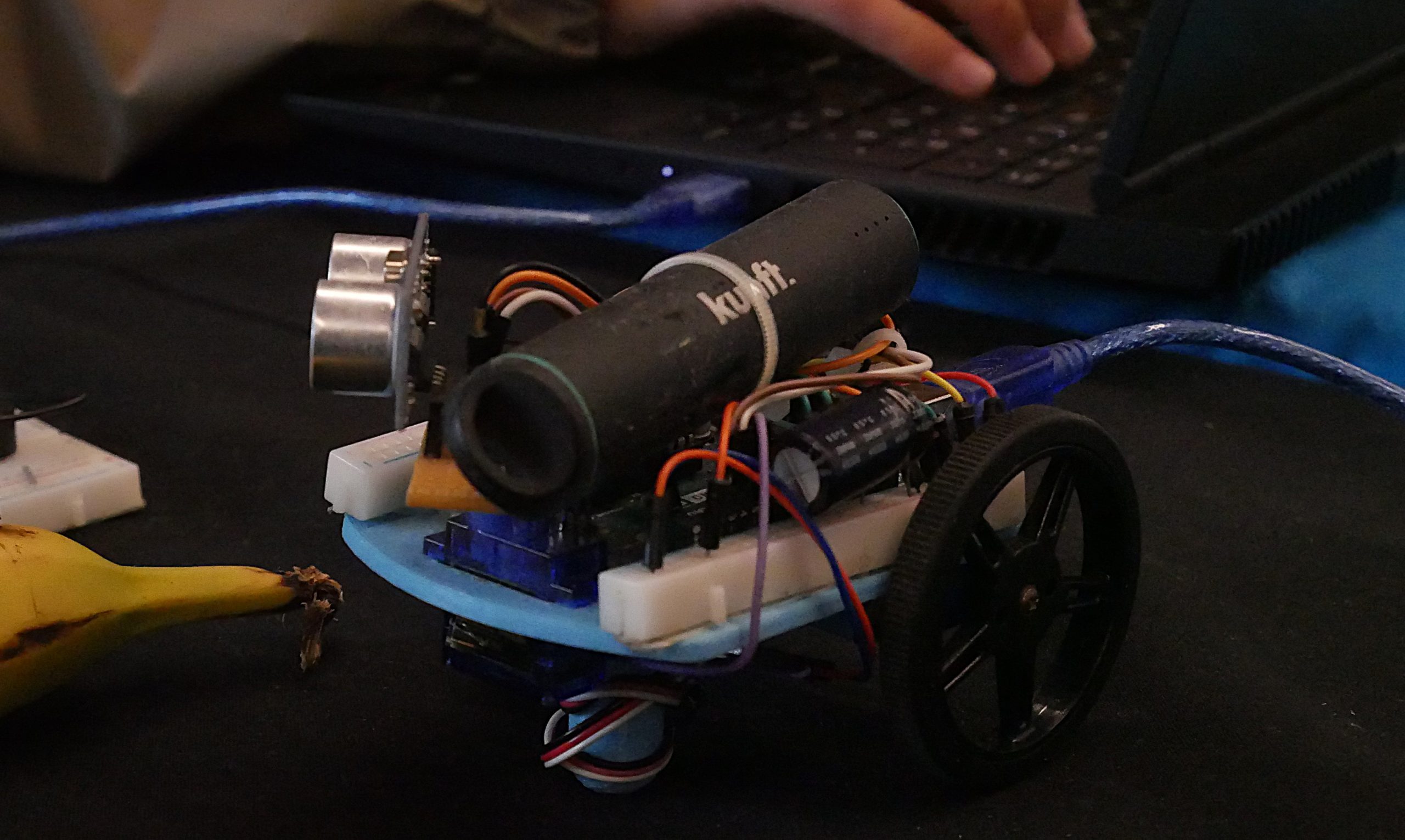
To strengthen engagement during thematic fairs or activities involving NEEC—such as JEEC or ULisboa summer camps—students also created interactive games, including NEECQuick, a fast-reaction game where players press buttons in sync with LED lights, and BananaNEEC, a piano made with bananas and Arduino.
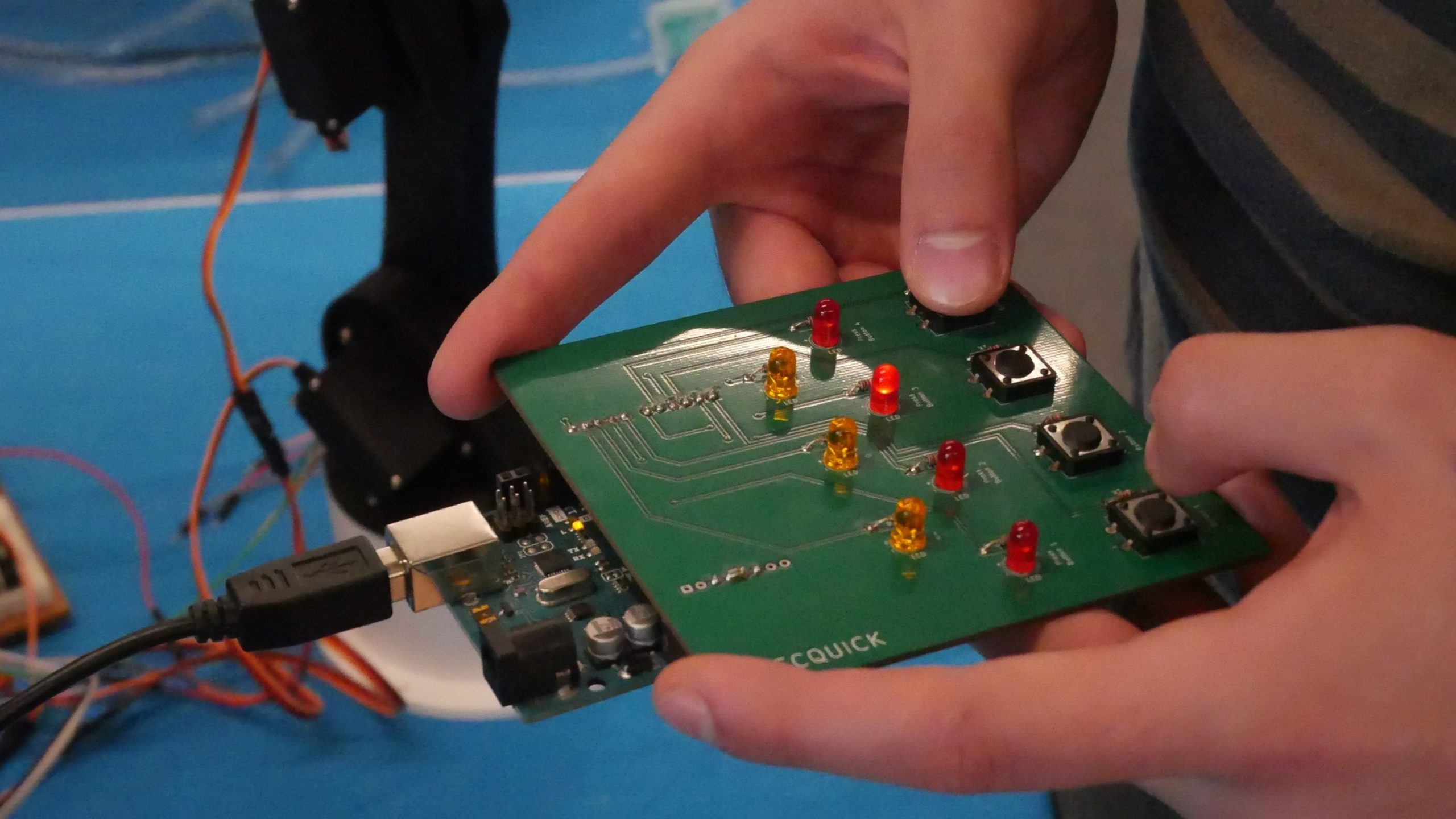
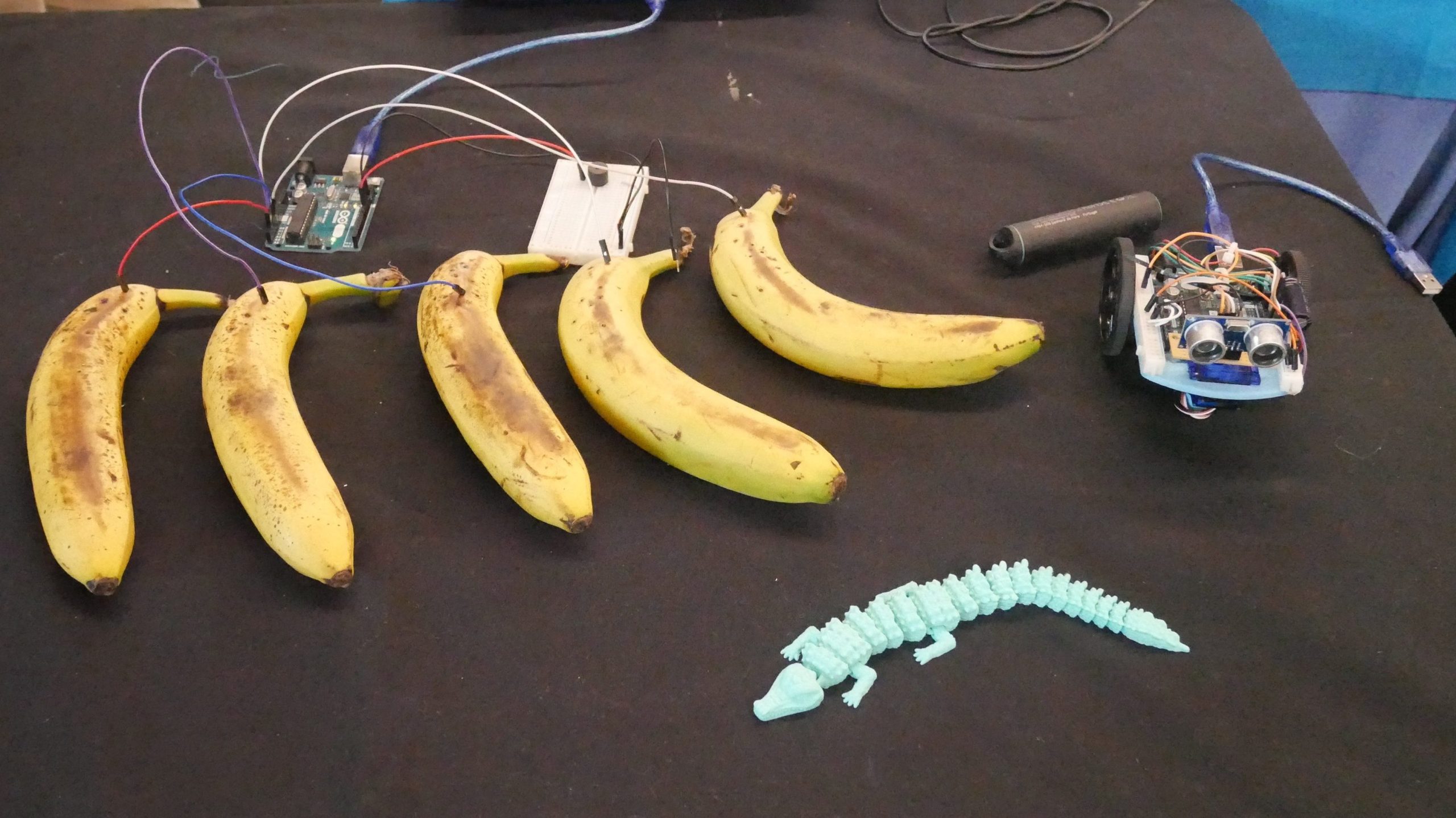
When asked why they joined NEEC, António and Diana highlighted their desire to apply what they learned in class through hands-on projects and deepen their knowledge in fields such as programming and 3D modeling. Diana was part of the team responsible for designing and assembling the NEEC Claw. She mentioned her long-standing interest in understanding “how things work,” particularly in physics and robotics. She chose Electrical and Computer Engineering because it applies physics to the energy sector and offers essential tools for a professional career. She also noted the field’s versatility, encompassing high-voltage grid management, energy transition, development of electronic components, and electric vehicles.
The program gives us the knowledge needed to understand how different systems work and the autonomy to develop our own projects.
Diana Dâmaso, LEEC student
Beyond the practical experience, Diana emphasized that NEEC also promotes the development of soft skills, which she considers crucial for the job market. Through event booths, workshops, and activities like NEECathon — an annual 2-day challenge for building functional, startup-style projects — students develop knowledge and teamwork, regardless of their initial experience: “I wasn’t alone... I had colleagues who helped me,” she said.
We all help each other, because we’ve all been through the same. Coming to Técnico doesn’t mean competition or individualism.
António Ribeiro, MEEC student
António chose the Electrical and Computer Engineering degree because of his passion for building electronic projects. In the future, he hopes to work in this growing field. The team spirit within NEEC and the opportunity to interact with students from other years and different master’s specializations also motivated him to join: “The group feels like a family,” he said. For him, participating in NEEC activities contributes to personal growth through time management, team coordination, and the responsibility that comes with working on projects—skills that also benefit students in their professional paths.
To conclude the interview, both students highlighted that NEEC also provides contact with companies and multiple networking opportunities with professionals from various fields, offering a direct connection to the industry.
